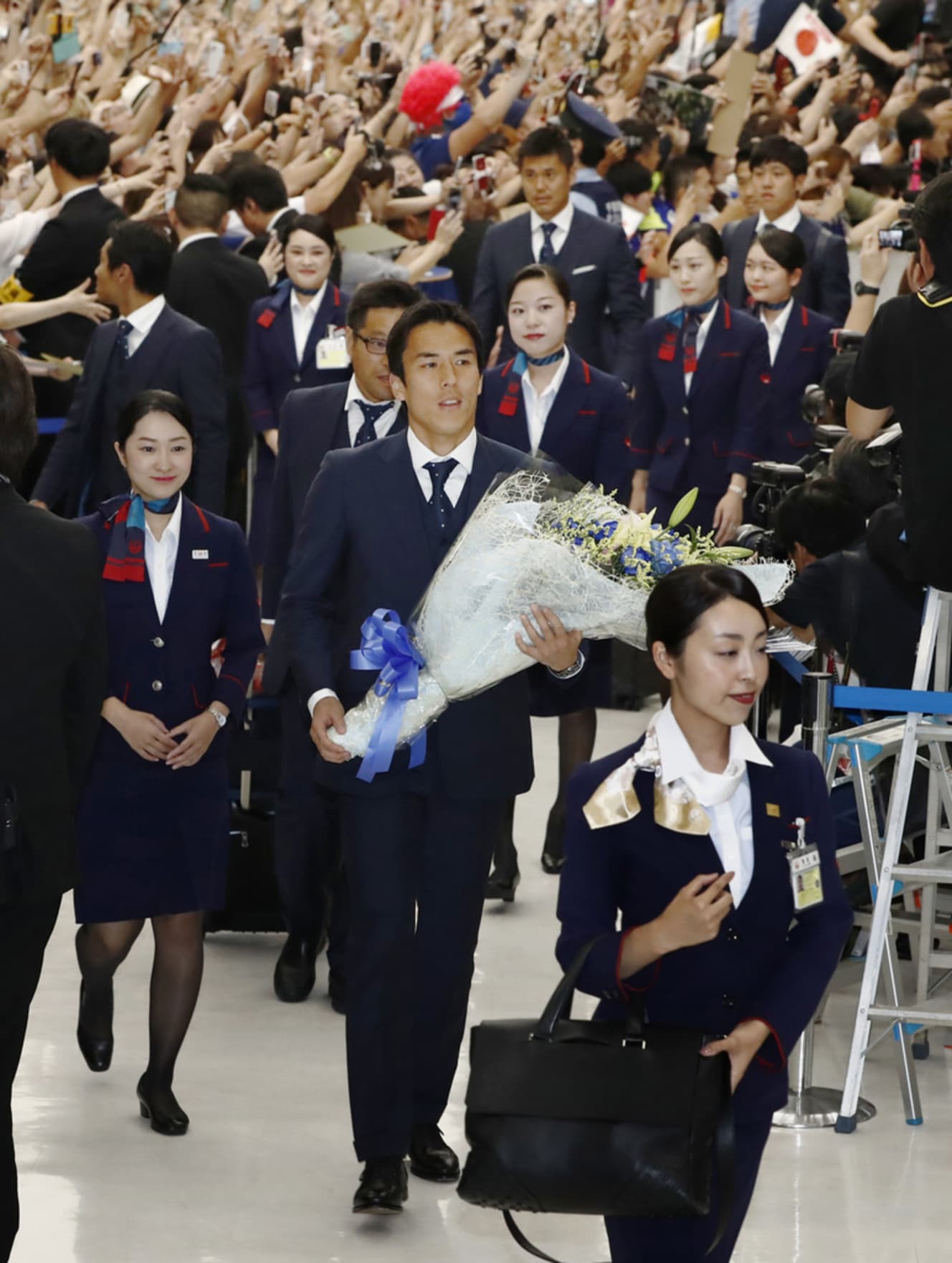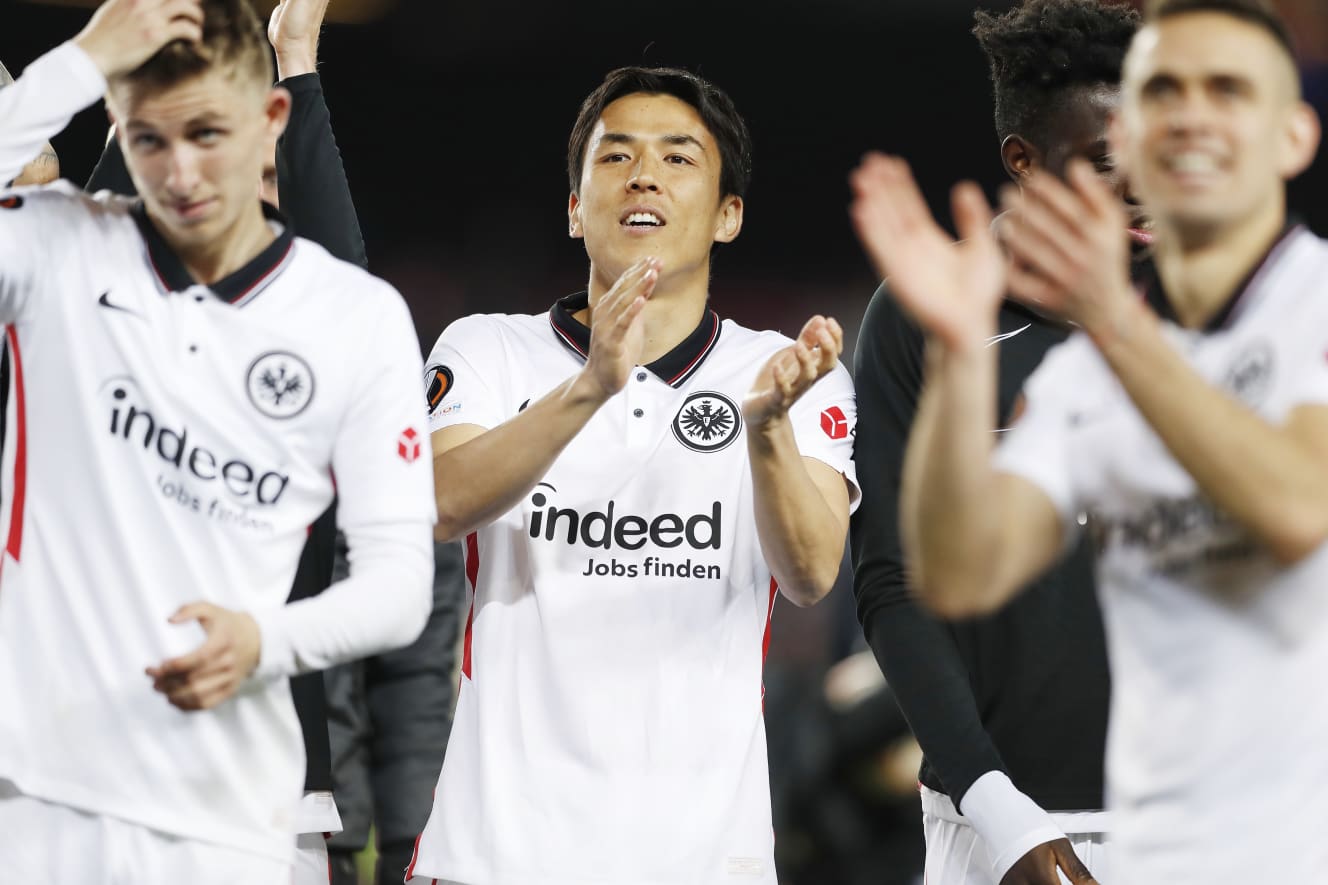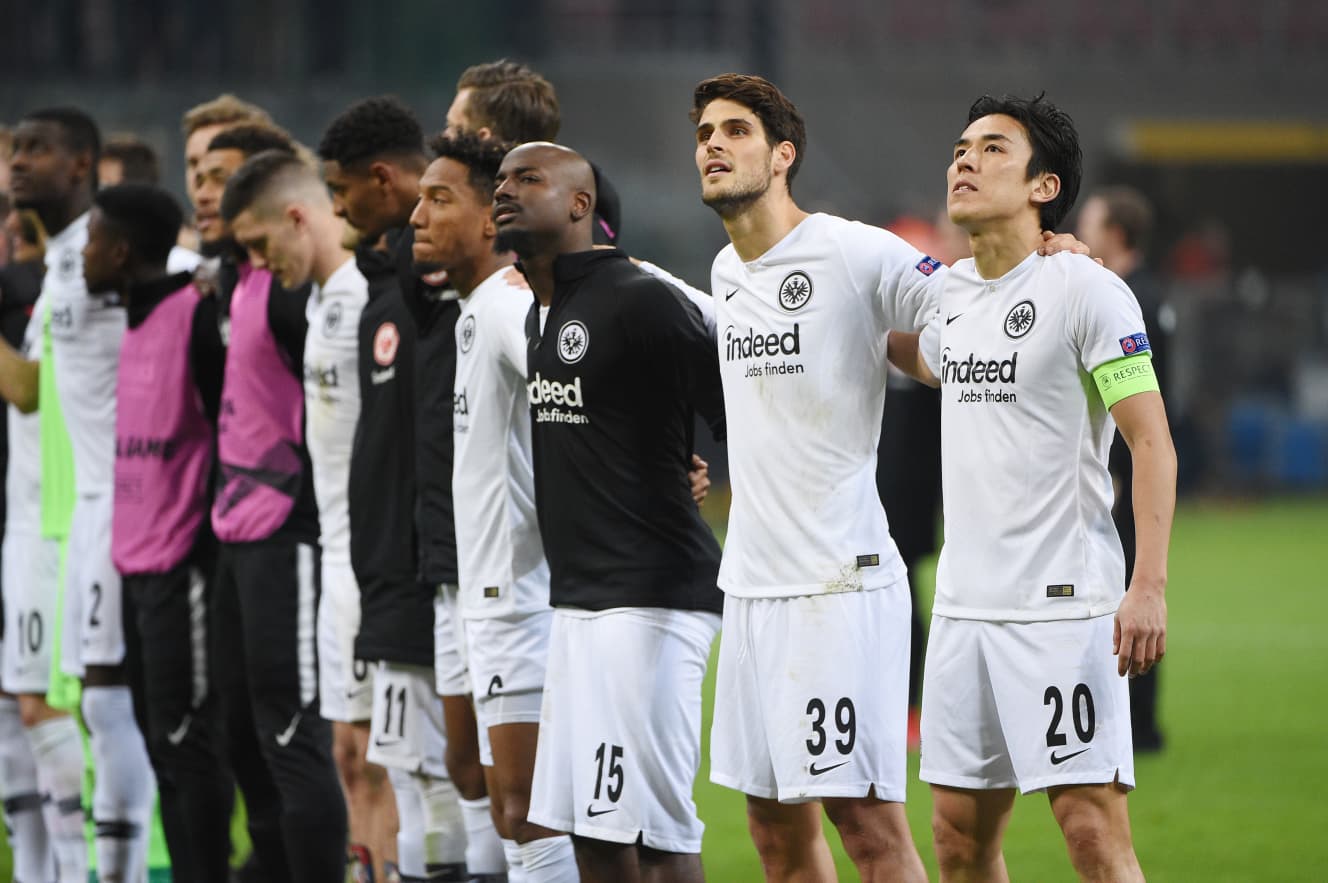Makoto Hasebe, 38, Signs Five-Year Contract: “Don’t Expect to Give Back to Japan” – The True Meaning of “Don’t Expect to Give Back to Japan

It was a victory that was not meant to be. On April 14, Frankfurt beat Barcelona in the quarterfinals of the Europa League. Makoto Hasebe, the oldest player on the team, played only two minutes of the 11 minutes of extra time in the second half, but it was a change that reflected the desire of both the club and the manager to keep their most valuable player on the pitch, even if it was only for a few minutes.
In the 91st minute, after 45 minutes had passed and a minute of extra time had elapsed, Hasebe and his teammates were sent off to the bench when the opponents scored as they stood by the side of the pitch to be introduced, and Glasner finally introduced them in the 99th minute when the end was in sight. After the game, Hasebe and his teammates seemed to be truly happy with the victory.
Frankfurt announced a five-year contract extension with Makoto Hasebe this past February. Hasebe signed a two-year contract only when he joined Frankfurt in the summer of 2014 and has signed one-year contracts for all of 2018 and beyond. This single-year contract is not unusual for veteran players, as they would rather see how far they can go with each other than sign a long contract.
This time, however, it is a five-year contract. Hasebe, who turned 38 this past January, will be 43 in five years. Why did the club decide to sign him to such a long contract? Sports director Markus Krejci expresses his high regard for the player.
Makoto Hasebe is the kind of player that every professional club wants to have. Despite his age, his ability on the pitch has reached a high level in the Bundesliga. As a personality, he is an important factor, especially for young players. He is also a strategist, calm and impeccable.
It is important for us that he remains at the club as a role model and key figure in the long term and that we can offer him his first experience on our coaching staff.”
Currently a Frankfurt player with 259 appearances, the most of any active player, in eight seasons since 2014, the club has been a first division contender in the 15/16 season, German Cup runner-up in the 16/17 season, German Cup champions in the 17/18 season and the Europa League semifinals in the 18/19 season, he has been a part of the club’s growth. Hasebe has been highly regarded for his consistent contribution to the club, never moving on from the club.
Hasebe himself has this to say about his own evaluation: “It’s hard for me to say.
I don’t know if I should say this myself, but I think he has a lot to offer in terms of humanity or ……. The coach and the sports director have told me that my contribution to the club is not only as a player, but also as a human being. They may also feel that I have potential to become a leader.
The word “humanity” here is a bit broader than the Japanese nuance, and in Hasebe’s case, it is more likely to be taken to mean his character and personality, including his serious attitude toward training and his diligence.

In terms of Hasebe’s potential as a coach, he began taking a coaching license course for top players, which the German Football Association started on a trial basis last fall. Prominent national team players such as Sami Khedira and Ilkay Gundogan have taken the course, and the fact that he is able to take time out of his busy national team schedule to attend the course, which is designed to enable active players to obtain coaching licenses, naturally suggests that the club is considering his future as a leader. “The clubs are also thinking of me as a leader.
I think the club is also thinking about me as a leader and is taking a long term view of me. When I think that the next step after being a player is to become a leader, if the club values me this much and is giving me opportunities, I don’t think I can pass up the chance.
The five-year contract he signed in February is based on the premise that he will transition not only as a player but also as a leader. Of course, Hasebe admits that the possibility of fulfilling his five years as a player, or even moving to another club as a player, is slim to none, given his age.
However, Hasebe has not decided that his retirement will be solely as a coach, and at this point in his career, he is aware of the difficulties involved.
He says, “When I think about communicating with the players I coach and their parents, and getting into the personal side of things, I honestly feel that it is difficult to do that in German. I feel that it is very difficult to compete with my language skills at …….
Also, I am currently taking the “B” level license course, but there is a considerable examination process to pass the “A” level and take the top-ranked course. I feel it is difficult, but if I have the chance, I would like to try it.
Over the past 10 years, the number of Japanese players working overseas has continued to increase, but there are still no top-level coaches who have obtained licenses overseas. While the number of players with overseas experience is increasing, the Japanese soccer world is facing the difficulty of increasing the experience of its coaches. But, as Hasebe puts it, “I think it’s important to give back to Japanese soccer.
I honestly don’t want them to expect too much from me,” Hasebe said. If you think about the Japanese soccer world, of course, the trend of the times is for more and more players to go abroad and for more and more coaches to be able to coach in Europe, and I think that is a natural trend.
Beyond coaching in Europe, I would like to coach in Japan. Hasebe, the former national team captain, can’t help but paint a self-indulgent picture that he would also be …… the coach of the Japanese national team.
But I don’t really feel like I have high expectations for him, and to be honest, there are parts of me that can’t say yes if I really want to be a coach. If I am given a chance, I would like to take on the challenge.
I don’t want to make Japanese soccer fans feel bad, but I think that if I can be at a high level and be at a high level of soccer, I can learn a lot from it, rather than doing it based on the idea that it is for the sake of Japanese soccer.
Ultimately, I would be happy if it is for the sake of Japanese soccer, but there is no assumption that I want to be a leader here for the sake of Japanese soccer.
In the five seasons starting next season, he has not yet decided how far he will compete as a player and how far he will transition to a coaching position. This is an unprecedented challenge for a Japanese player, and one that bears watching.


Interview and text by: Miko Ryokai
Born in Saitama Prefecture in 1975. Started covering soccer in 2001, and became a writer in 2003 when she covered the World Youth Cup (now the U-20 World Cup) in the UAE. Currently resides in Düsseldorf, Germany, where he has lived since March 11, 2011.